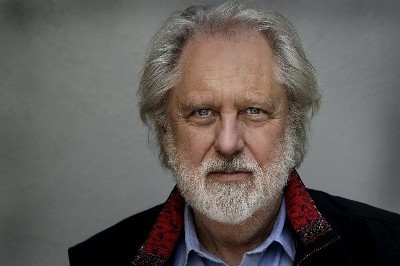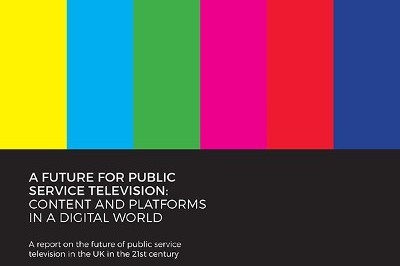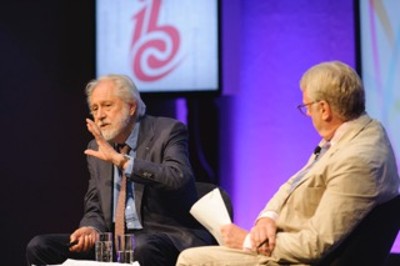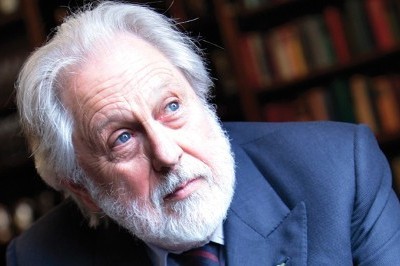Charter plans stifle BBC’s independence
by Des Freedman, David Puttnam
Government influence and market pressures have neutered the BBC’s draft charter, argue David Puttnam and Des Freedman
It is a well-established trick of the policy trade that if you want to implement unpopular changes, you should threaten the worst and then compromise so that both sides can then claim success.
This is what appears to have happened with last week’s publication of the draft BBC Charter and Agreement, with Tony Hall speaking of a ‘hard won charter’ that will guarantee the BBC’s immediate future.
We too are delighted to see that the government has dropped its original plans to set up a unitary board dominated by government appointees. We hope that our criticism of these plans contributed to this welcome shift. We are pleased that the Charter will last for 11 years, taking it outside of the electoral cycle, and that it requires the BBC to fully represent the UK’s diverse communities.
However, we believe that it fails to fully safeguard the BBC’s independence, both in funding and governance, and that it seeks to reinforce the Government’s determination to see regulation of BBC content and services in relation to its impact on competition.
The draft Charter does not secure sufficient guarantees about the BBC’s future, foreshadowing a potential threat to the BBC’s status as a universal public service broadcaster able to provide a range of popular and diverse content free at the point of use.
Government influence
Firstly, we are disappointed to see that the Secretary of State seeks to retain a significant role in the appointment of the board’s extremely powerful Chair (as well as the four members representing the Nations).
We had hoped that the government would seriously consider the proposals produced for us by the former commissioner for public appointments, Sir David Normington, setting out a series of tests to ensure a genuinely independent board. Sir David has criticized the shortcomings of the existing public appointments process and we believe it remains vital that the new Chair is selected purely on merit, not as a result of personal or political connections with the government of the day.
A political appointee could not only influence the BBC’s editorial and operational leadership, but also undermine confidence in the selection of the board’s other five non-executive members, as the Chair also heads up the Nomination Committee that draws up the shortlist for these appointments.
Market impact
Secondly, we are concerned that the Charter disproportionately requires the BBC to be mindful of its impact on the wider media market. Scheduling, for example, will now need to consider ‘any potential adverse impact on fair and effective competition’, which was totally absent from the previous Agreement.
Additionally, ‘distinctiveness’ is to be firmly embedded into the overall remit of the BBC, as Ofcom is now required to monitor the BBC’s obligation ‘to secure the provision of more distinctive output and services’.
This could easily prevent the BBC from running popular programmes in peak-time or from developing new online services that its competitors would frown upon. In particular, we believe the board’s autonomy in managing the BBC’s strategic direction will be limited by the draft Charter’s requirement that Ofcom has the final say in any disagreement between board and the regulator.
Shortcomings
Issues of significant concern to us that featured in the white paper have been incorporated into the draft Charter. For example, the BBC’s need to pursue technological innovation in the public interest has been downgraded from a core public purpose to a ‘general duty’. The Charter also firmly endorses the BBC’s right to provide a subscription service, allowing the BBC to ‘develop, test and pilot such a service, with the approval of the appropriate Minister’.
There are significant omissions. There is nothing that will prevent future funding arrangements from being carried out behind closed doors, and no detail of how to realize diversity as a public purpose; there is no onus on the BBC to change its employment practices, nor to allocate more money to, for example, BAME programming.
In conclusion, we are not quite as optimistic as the director general. There is little here to prevent the government from influencing the composition of the new unitary board, or from once again using licence fee revenue to pursue its own political projects (as it did when forcing the BBC to pay for free TV licences for the over-75s as part of its welfare reforms).
Instead, the BBC is to be handed an eleven-year extension with limited prospects for growth, and a requirement that it must not negatively impact the wider media market. Taken together, the proposed Charter and Agreement comes across not as a vote of confidence but a ‘holding position’.
David Puttnam and Des Freedman are overseeing the Inquiry into the Future of Public Service Television





